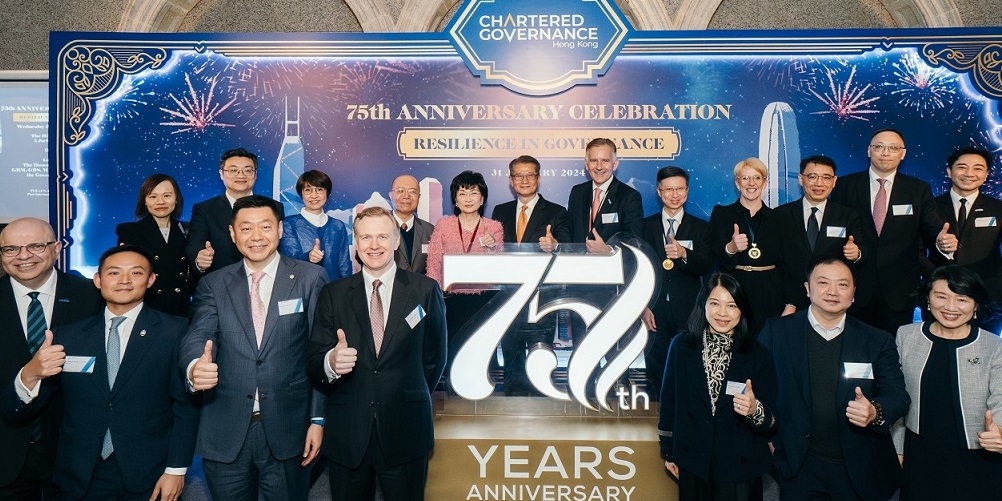Our Profession
The Hong Kong Chartered Governance Institute (the Institute) is a professional institute representing Chartered Secretaries and Chartered Governance Professionals in the Chinese mainland and Hong Kong. The Institute is also the Hong Kong/China Division of The Chartered Governance Institute as part of a global profession promoting governance.
Corporate governance is important
Corporate governance is the system of rules, practices and processes by which an organisation is directed and controlled. It ensures that organisations have appropriate strategic planning and decision-making processes and controls in place, with a culture that is aligned, so that the interests of all stakeholders are identified and (to the extent possible) balanced in the pursuit of the organisation’s purpose.
Good governance and related best practices provide an organisation with:
- A framework to achieve its purpose in a way in which the interests of stakeholders are balanced and risks are identified and managed.
- Stakeholder trust and confidence, based on being transparent, accountable, and responsible to them.
- Long term financial sustainability.
- Legally and regulatory compliant, ethical operations.
What does the governance professional do?
- Highly valued members of senior management teams in organisations.
- The go-to authority on governance issues and advisers to chairpersons and boards.
- Qualified to act as authorised representatives and company secretaries for Hong Kong-listed companies.
- Plays a crucial advisory role in assisting organisations in upholding the highest standard of governance and in developing and implementing procedures and policies that foster efficient administration.
- Many have expertise in risk management, compliance, and stakeholder engagement, helping to promote and shape an organisation's compliance culture.
- Serves as a liaison for communication between the executive and non-executive boards and between the board and management.
- Supports director training, helps with problem-solving, advising and influencing board-level governance and strategic choices, and plans, organises, and records meetings.
What qualities should a governance professional possess?
- Constantly refresh their skills and expertise and keep up with new developments in laws and regulations relevant to their field of work.
- Adapt to a continually changing and expanding job, behave with moral rectitude, support equality, diversity, and inclusion, and stay clear of conflicts of interest.
- Possess a high level of professionalism, competence, and behaviour and the ability to communicate and know when to take an independent stance when necessary.
History of the Profession
In 1891, when a group of 18 company secretaries got together in the UK to form the Institute of Secretaries of Joint Stock Companies (Institute of Secretaries), members of the Chartered Secretary profession were still largely seen as administrative officers. They were best known as the company officers who arranged board and shareholder meetings, took the minutes of board meetings and managed the company’s statutory registers and filings.
In the intervening 130 years, much has changed. The importance of good governance, applies not only for organisations commercial and not-for-profit, but also for the whole of the capital market and societies within which they operate. Alongside this development is the increasing importance of the roles of governance professionals.
In recent years, the Institute has been implementing a repositioning exercise to broaden the understanding of the governance role of company secretaries.
This led to the launch in 2019 of the dual qualification of Chartered Secretary and Chartered Governance Professional (CS/CGP), and the launch in 2020 of an updated qualifying programme – the Chartered Governance Qualifying Programme (CGQP). The CGQP, together with the continuous professional development (CPD) services provided by HKCGI, provide focused elements relating to governance, board dynamics and risk management in the training of members. All HKCGI members have successfully transitioned to the new designation and are eligible for the new post-nominals of FCG HKFCG for Fellows and ACG HKACG for Associates. Going forward, students who successfully complete the CGQP will attain the dual qualification as well.
This repositioning exercise culminated on 20 July 2021 in the adoption of HKCGI’s current name, and the launch on 20 January 2022 of the new logo, tagline and brand identity, as well as the redesigned Institute website. These enhancements reflect the governance roles and responsibilities performed by HKCGI’s members, and recognise the global convergence concerning the importance of governance.


